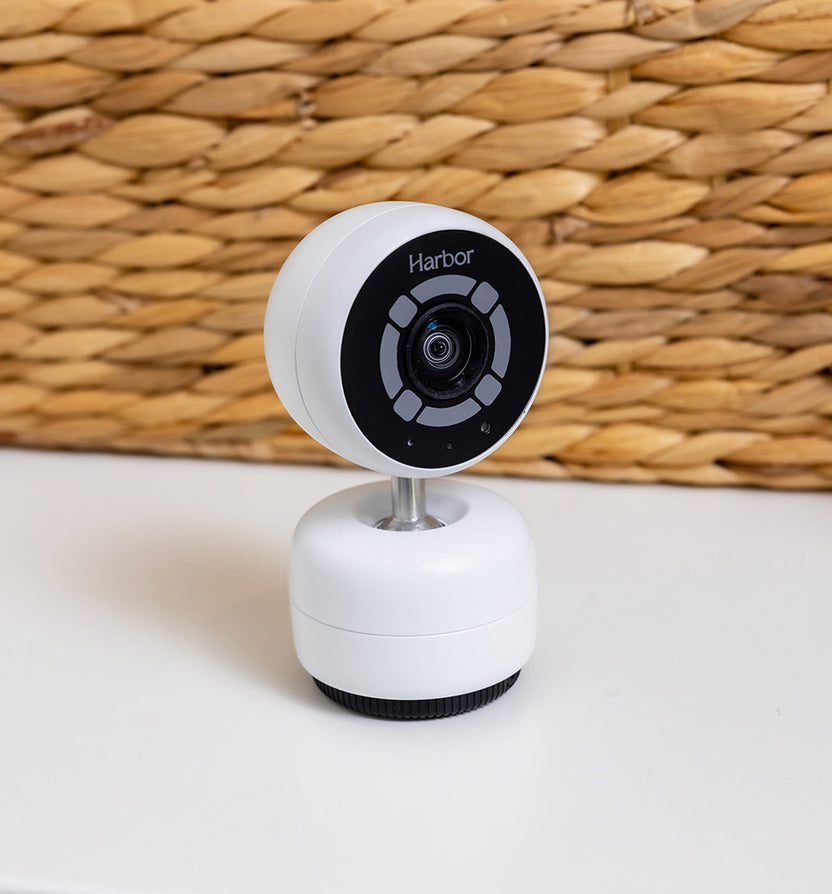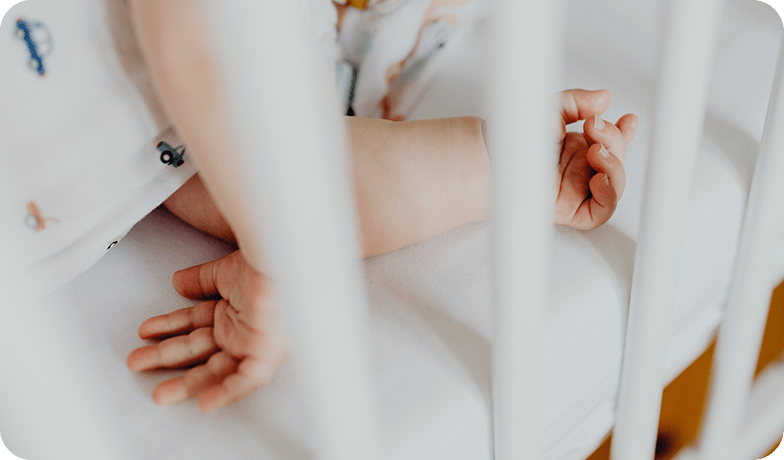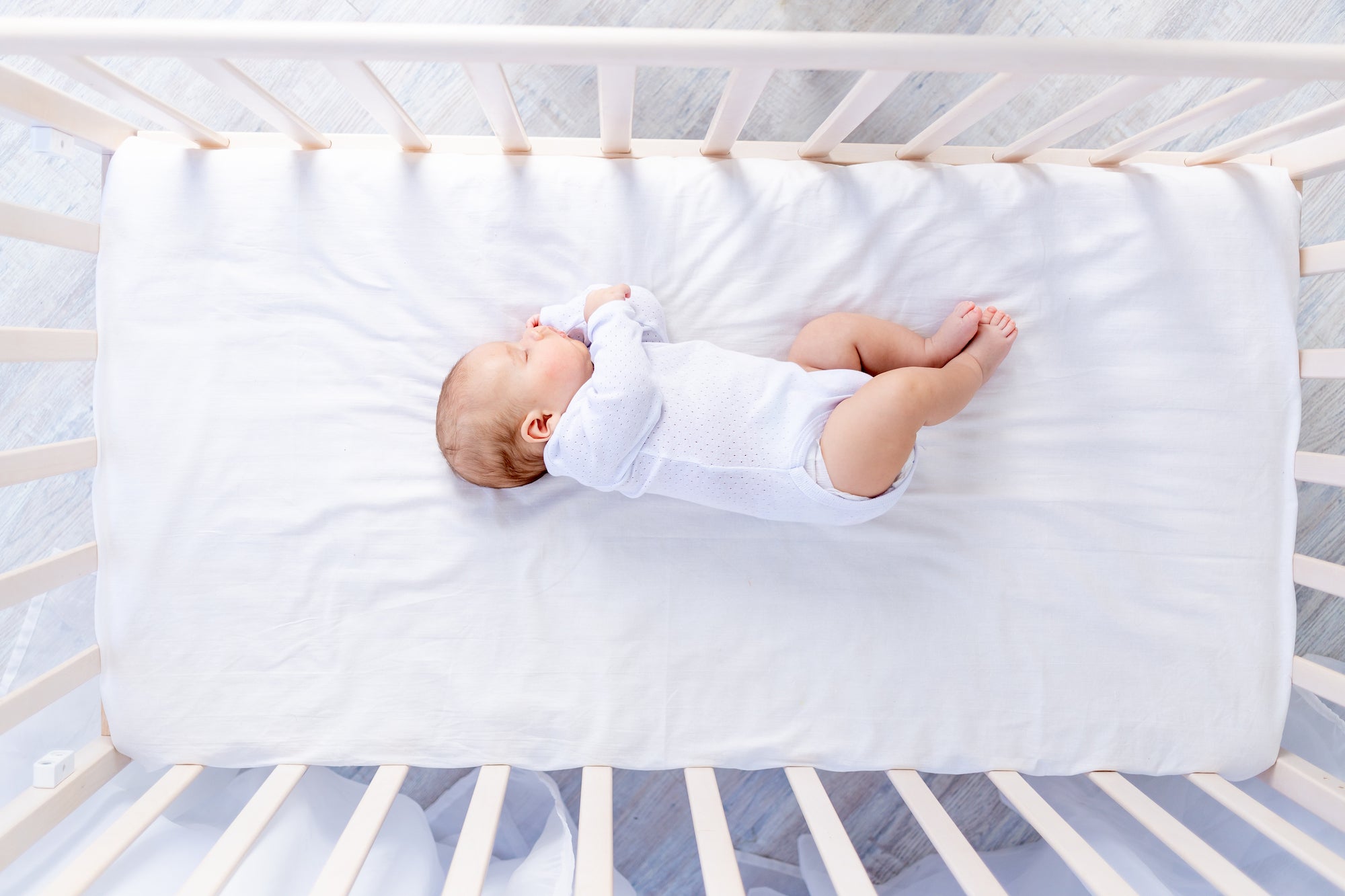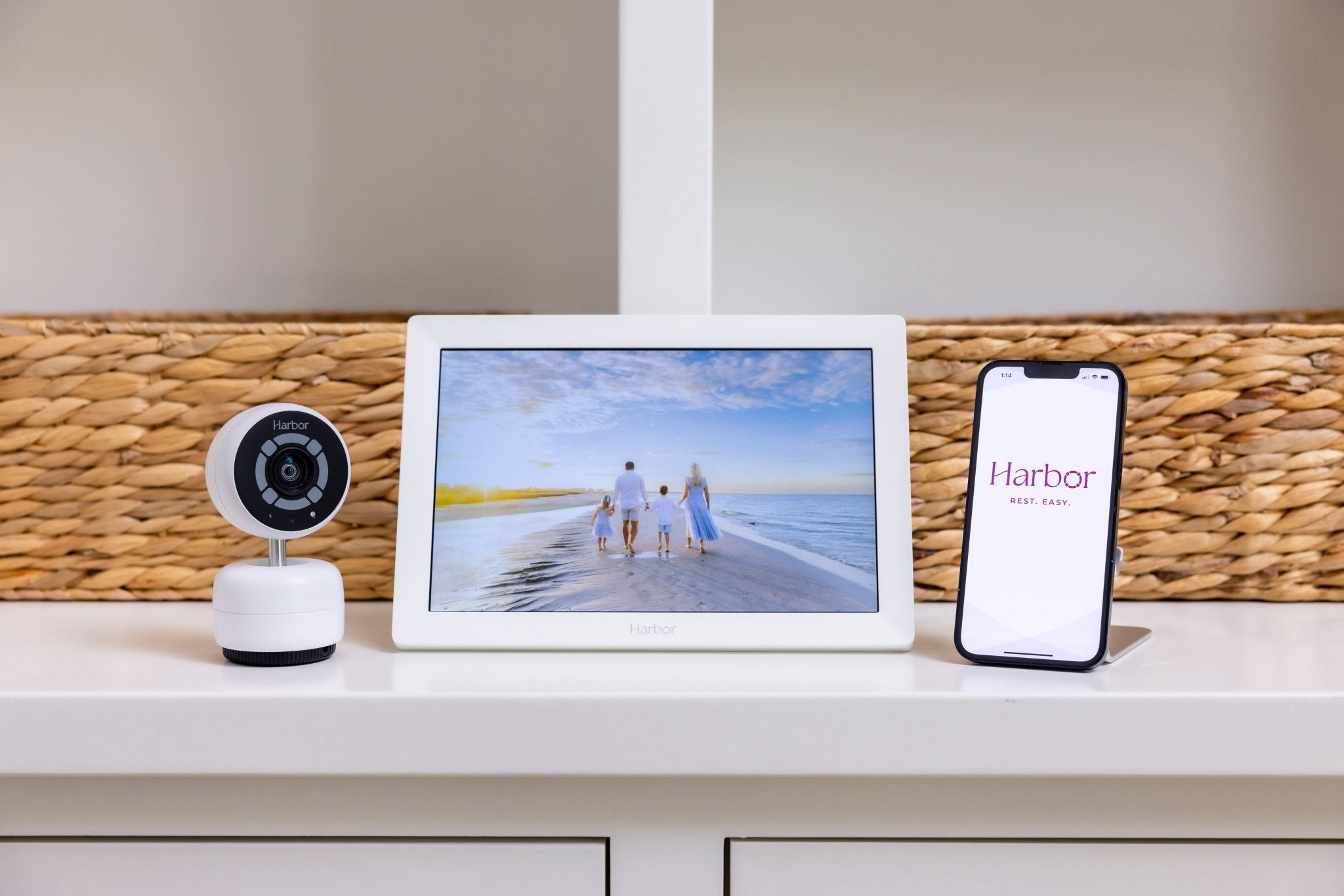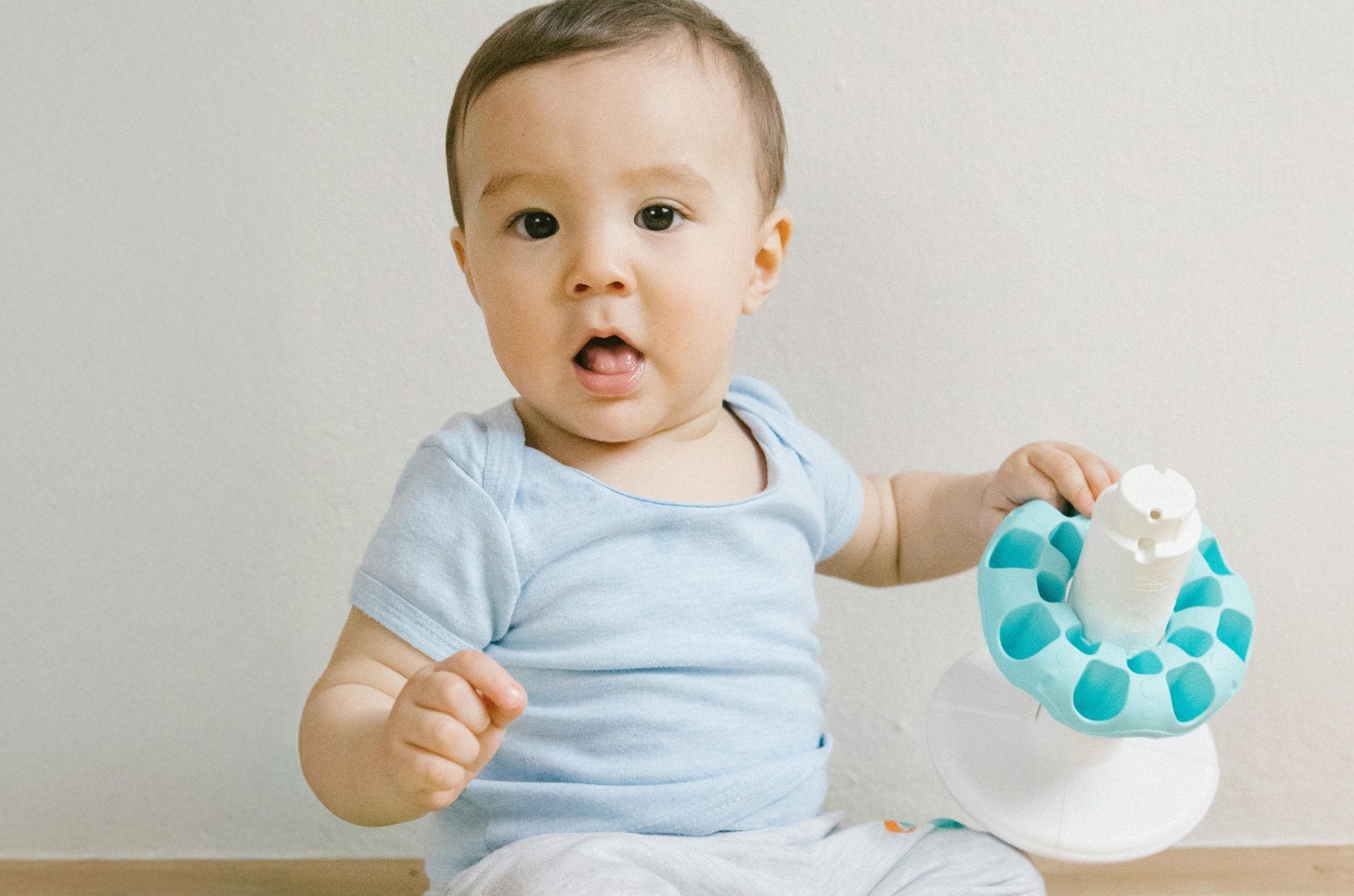
Written by: Angela McPhillips, RN
At nine months, baby will be brimming with energy, curiosity, and determination. They’re exploring their world in new ways each day, whether scooting across the room for a toy, pulling themselves up to stand, or babbling to get your attention. Their growing independence is exciting to witness, even if you’re worn out from chasing after them!
Understanding what to expect at this age can help you support baby’s development while celebrating their progress. In this guide, we’ll cover the major developmental achievements at nine months, offer tips to encourage growth, and share expert advice for keeping your little one safe and thriving during this active stage.
What’s typical at nine months?
Each baby develops at their own pace, but by nine months, most are building strength, coordination, and communication skills that set the stage for walking and talking. Here’s what you can expect:
Physical milestones at nine months
At this age, baby’s growing muscles and improved coordination allow them to…
-
Sit independently: They may actively move in and out of sitting positions without assistance.
-
Pull up to stand: Some babies will practice pulling themselves up using furniture or your hands, but most won’t reach this milestone until closer to 12 months.
-
Crawl or scoot: Whether crawling, scooting, or wiggling, baby will find ways to get around.
-
Use a pincer grasp: Picking up small objects with their thumb and forefinger is a key fine motor skill at this stage.
Social and emotional milestones at nine months
Baby is developing stronger social bonds and showing their personality more than ever.
-
Separation anxiety: Baby may grow clingy or cry when you leave the room. This is a normal part of development!
-
Engaging play: Your little one will love games like peek-a-boo and patty-cake, and they may laugh at your silly antics.
-
Expressing emotions: Baby will use facial expressions and sounds to communicate excitement, frustration, or joy.
Cognitive milestones at nine months
At nine months, baby is starting to understand how the world works!
-
Object permanence: They know that an object still exists even if it’s out of sight, making hide-and-seek games especially fun.
-
Exploring cause and effect: Dropping toys repeatedly or banging objects together helps them learn cause and effect.
-
Problem-solving: Baby might figure out how to grab a toy that’s just out of reach or open a simple container.
Language and communication milestones at nine months
Communication skills are blossoming as baby experiments with sounds and gestures.
-
Babbling: Expect sounds like “mama” or “dada,” often without meaning (yet!).
-
Responding to names: They may turn to look at you when you call their name.
-
Using gestures: Baby might lift their arms to be picked up or wave “bye-bye.”
How you can support baby’s development
Supporting baby’s growth is all about creating opportunities for them to explore, practice, and learn at their own pace. Here are some practical tips to encourage their development:
Encouraging physical development at nine months
-
Practice sitting transitions: Place toys slightly out of reach to encourage baby to move in and out of sitting positions while reaching for them.
-
Pull-up practice: Offer sturdy furniture (secured to the wall!) or your hands to help baby pull up to stand. Remember to cheer them on when they succeed!
-
Safe crawling spaces: Baby-proof your home to give baby the freedom to crawl and explore safely.
Fostering social and emotional development at nine months
-
Play peek-a-boo: Games like peek-a-boo reinforce object permanence and strengthen bonds.
-
Create comforting routines: Simple rituals, like saying goodbye before leaving the room, can ease separation anxiety.
-
Respond to their emotions: Acknowledge their feelings with warmth and reassurance, even when they’re upset.
Boosting cognitive development at nine months
-
Explore cause and effect: Let your play with toys that respond to actions, like stacking blocks or pushing buttons.
-
Encourage problem-solving: Provide toys that require simple problem-solving, like shape sorters or containers with lids.
-
Read together: Point to pictures and name objects to build your little one’s vocabulary and comprehension.
Supporting language development at nine months
-
Narrate your day: Talk to baby about what you’re doing, whether changing their diaper or preparing a snack.
-
Encourage babbling: Repeat their sounds back to them, adding new words to model language.
-
Use gestures: Wave, clap, or point to reinforce communication skills.
Delayed milestones: When to call your pediatrician
The American Academy of Pediatrics recommends a standard developmental screening for all babies at nine months. This is a great time to let your pediatrician know if you notice any of the following in your baby:
-
Not sitting on their own or having difficulty moving in and out of a sitting position
-
Not responding to their name or familiar sounds
-
Not showing interest in reaching, grasping, or playing with objects
-
Not trying to pull up to stand or bear weight on their legs when supported
-
Not babbling or making sounds to communicate

-
Promote pulling up and cruising: Baby-proofing your home will be even more important as baby becomes more mobile. Ensure that heavy furniture is bolted to the wall, electrical outlets are covered, and stairs are closed off with a secure gate. Designate space in your living room or bedroom for baby to stand and cruise. These motor activities promote the upper- and lower-body strength necessary for their next big gross motor milestone: walking!
-
Avoid walkers and jumpers: While they might seem helpful, walkers and jumpers can hinder natural motor development. They position your baby unnaturally, which can delay skills like walking and standing. (Plus, they’re dangerous! Check out this Consumer Reports article to learn more.) Instead of a walker, opt for a stationary activity center or encourage free movement on the floor. If you use a stationary activity center, make sure baby’s feet are flat on the floor and limit use to 20 minutes a day.
Supporting every step
At nine months, your little one will seem like they’re developing overnight. From sitting and pulling up to babbling and exploring, you’ll notice a lot of exciting changes! As they approach their first birthday, know that those first wobbly steps will be just around the corner.
Your time, love, and attention are key to helping baby grow and thrive. Keep up the incredible work and enjoy the journey!
Go-to resources to help you monitor, track, and support baby’s development
-
American Academy of Pediatrics Ages & Stages
-
Nemours KidsHealth Growth & Development
-
Pathways.org, resources, including games and videos, developed with and approved by pediatric physical and occupational therapists and speech-language pathologists
-
Harvard University’s Center on the Developing Child for a deep dive into the science behind child development
